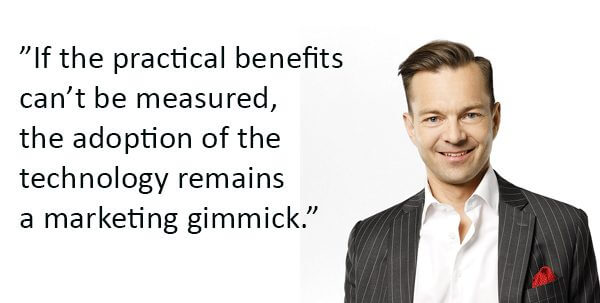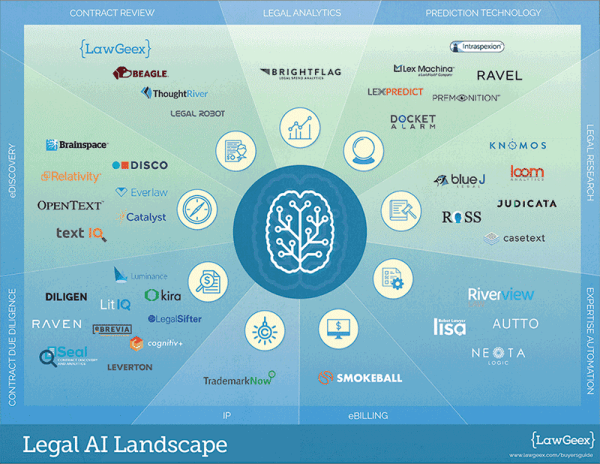Samuli’s blog: Taking technology from a gimmick to a way of operating
July 17, 2017

Digitalization, artificial intelligence and Legaltech are hot topics in the legal world. A perceptible change in attitudes was witnessed last year. The topic was briefly addressed at the International Bar Association’s annual conference in 2015, but by the following year digitalization was the main topic of discussion at the event.
Existing applications evolve and new ones are constantly being created. LawGeex published an interesting study this year about the situation in the Legaltech sector. The accompanying illustration categorizes the products and services in the market by functionalities. What’s telling is that the chart with its categories is already somewhat outdated, as new applications and uses emerge.

Making sure the client reaps the benefits
In the tradition-rich legal sector, the ways of operating and business models have been learned over decades – if not centuries. That’s why it is easy to earn a reputation as a front runner, and the image of being old-fashioned is freshened with even modest steps in technology use. But once the novelty and market buzz have dissipated, the basic question remains: how will the technology benefit the client? The benefits must be seen as an improvement in efficiency or as a new service model. It must give clients a higher quality of service faster, more efficiently, and more economically. If the practical benefits can’t be measured, the adoption of the technology remains a marketing gimmick.
DD tools specialized in reviewing contracts scan through the materials searching for the desired contractual phrases faster than an army of lawyers. The system recognizes the various formats of the desired phrases and learns with tremendous speed. However, the task immediately becomes more complex if the contracts contain something that is non-standard, like surprising terms. The DD tool is unable to search for them unless specifically told to. Therefore, a comprehensive Due Diligence review cannot yet be done utilizing artificial intelligence exclusively. Of course, applications to address this problem are already under development, so this concern too will be obsolete in the near future.
The joy of technological benefits will remain short if the business model prevents the use of them. The situation is reminiscent of the introduction of the first automobiles with combustion engines. The combustion engine replaced horses as a power source, but the look of the automobile continued to resemble that of the traditional horse buggy. It was eventually realized that modifying the vehicle’s structure and operating principles improved the efficiency and safety.
In order for the adoption of new technology in the law firm to be more than just replacing the horse ahead of the buggy, the ways of operating also must be modified in conjunction with the technology deployment. Then we can provide service faster, more efficiently and with even higher quality.
Lexia’s technology plan to roll out in autumn
This coming autumn our working group will produce a vision on the Lexia way of harnessing technology to benefit our clients. The working group is headed by Lexia newcomer Iikka Sainio, who, alongside his attorney work, is our Innovation Manager. In addition to Iikka, the team includes Advisor Board member Ari Rahkonen, head of the ICT practice Sami Rintala, technology attorney Petteri Günther, and technology native and law student Robin Eklund. The group will create a technology plan proposal, including a timetable, which I as the CEO will present to the Board before the end of this year. Communication about our practical solutions will follow that.
In addition to the technology review, the group will also focus on ways of operating and human resources. We will also decide on when the technology should be taken into use. Technology is advancing at tremendous speed, so sometimes it’s wise to wait. By waiting you forfeit the market attention of a pioneer, but the true benefits for clients are achieved only when the technology is mature enough.
Additional information:
Samuli Koskela, CEO, tel. +358 40 588 8323, [email protected]